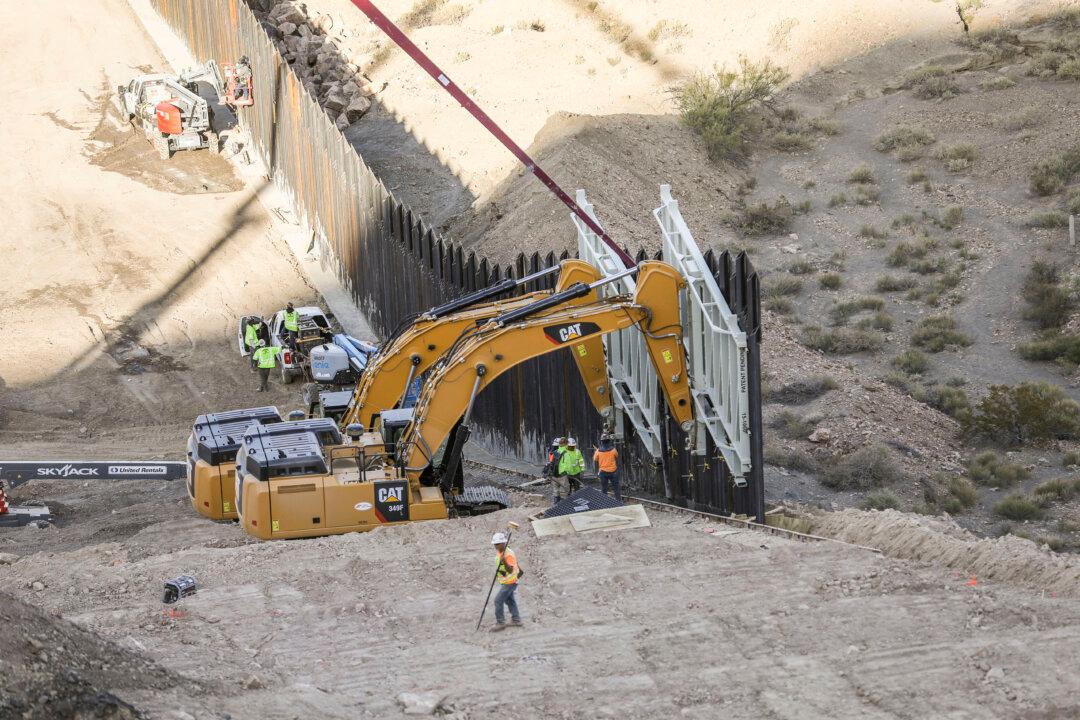A federal appeals court on Dec. 4 overturned a lower court ruling that blocked the Trump administration’s diversion of military funds toward border wall construction.
In a 2–1 decision (pdf), the 5th U.S. Circuit Court of Appeals ruled that El Paso County and the nonprofit Border Network for Human Rights (BNHR) didn’t have standing to challenge the Trump administration’s decision for $2.5 billion in Department of Defense (DoD) counterdrug activity funds to be “reprogrammed” and for $3.6 billion in DoD money originally slated for military construction projects to be reallocated to building the border wall.





